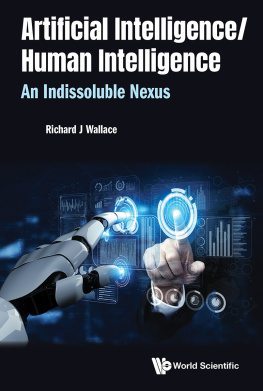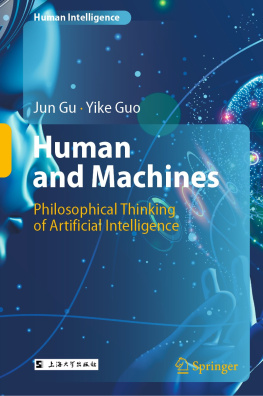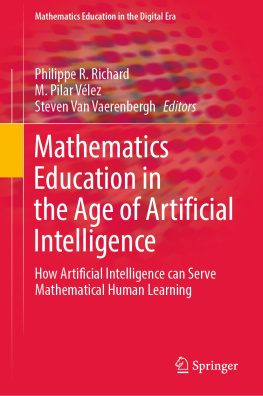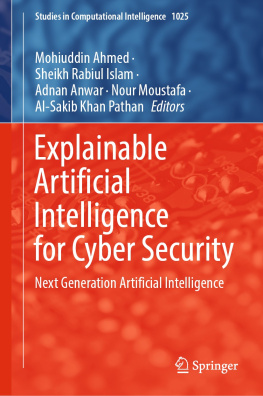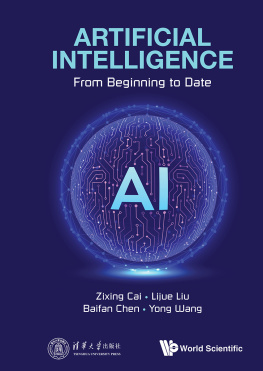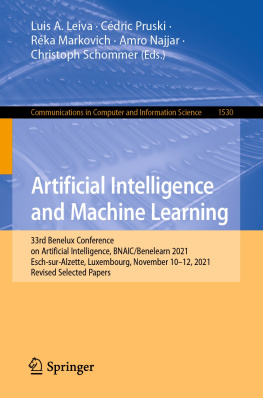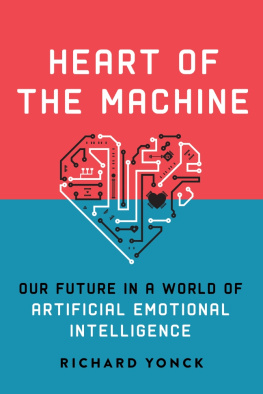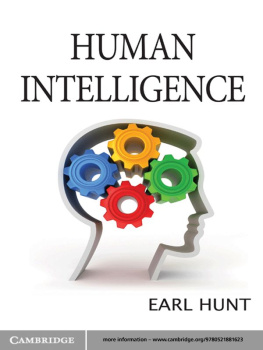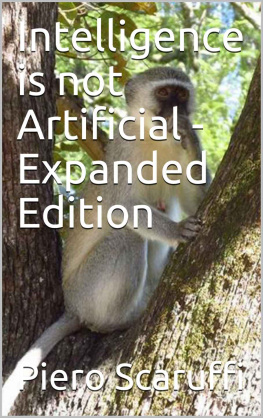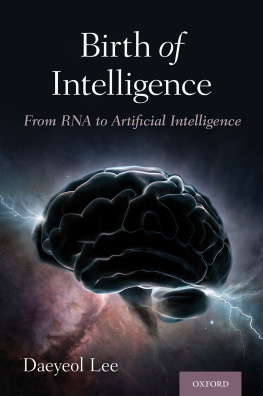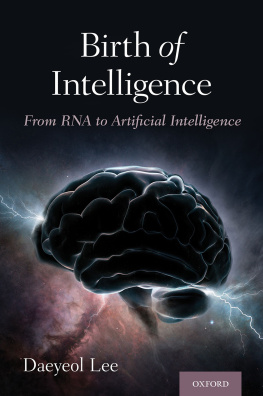Contents
Pagebreaks of the print version

Artificial intelligence/
Human Intelligence
An Indissoluble Nexus
Artificial intelligence/
Human intelligence
An Indissoluble Nexus
Richard J Wallace
University College Cork, Ireland

Published by
World Scientific Publishing Co. Pte. Ltd.
5 Toh Tuck Link, Singapore 596224
USA office: 27 Warren Street, Suite 401-402, Hackensack, NJ 07601
UK office: 57 Shelton Street, Covent Garden, London WC2H 9HE
British Library Cataloguing-in-Publication Data
A catalogue record for this book is available from the British Library.
ARTIFICIAL INTELLIGENCE/HUMAN INTELLIGENCE
An Indissoluble Nexus
Copyright 2021 by World Scientific Publishing Co. Pte. Ltd.
All rights reserved. This book, or parts thereof, may not be reproduced in any form or by any means, electronic or mechanical, including photocopying, recording or any information storage and retrieval system now known or to be invented, without written permission from the publisher.
For photocopying of material in this volume, please pay a copying fee through the Copyright Clearance Center, Inc., 222 Rosewood Drive, Danvers, MA 01923, USA. In this case permission to photocopy is not required from the publisher.
ISBN 978-981-123-287-9 (hardcover)
ISBN 978-981-123-308-1 (paperback)
ISBN 978-981-123-288-6 (ebook for institutions)
ISBN 978-981-123-289-3 (ebook for individuals)
For any available supplementary material, please visit
https://www.worldscientific.com/worldscibooks/10.1142/12177#t=suppl
Typeset by Stallion Press
Email:
Printed in Singapore
What is your aim in philosophy?
To show the fly the way out of the fly bottle.
L. Wittgenstein
n b m in r, a mo p d
(Whoever can reason well, will appreciate why he ought to be thankful.)
Yoruba proverb
Preface
Artificial intelligence is an inherently non-serious subject, unlike say, databases or operating systems. This is part of what gives this field its fascination. But at the same time, as an intellectual endeavor it has given rise to a body of results that are of considerable significance for science and engineering. This is why such fascination goes beyond mere intellectual ogling, at least if one is willing to roll up his sleeves and dig into the subject.
One of the distinctive features of AI as a field is that it seems to be intensely interesting to journalists. This, in itself, is reason for caution. It perhaps reflects the presence of certain dramaturgical features, which may in turn indicate a degree of shallowness in the conceptions that inform the field, or even word magic weaving its spell among practitioners as well as observers. But at the same time, as I have already indicated, AI cannot be dismissed on that account.
Here it is worth noting that my relation to the field is that of an insider, but one who has done most of his work in the closely related field of combinatorial search rather than AI per se. Hence, my perspective shares something with that of outsiders, while still being that of someone who has participated from within and this includes papers in AI conferences (a qualification that many outside commenters cannot claim).
The present book originated as a talk that was given at Covenant University in Ota, Nigeria (as an invited talk at the International Conference on Adaptive Science and Technology ICAST 2014) and the Obafemi Awolowo Univeristy in Ile-Ife. I wish to express my gratitude for the hospitality of the members of the faculty of engineering and administrators and staff at Covenant and the administrators and members of the Computer Science Department at OAU who helped make my trip to Nigeria a pleasant and memorable one. In particular, I should single out Prof. Sanjay Misra who invited me to give the talk at ICAST, little knowing what would eventually ensue. (So if we take a rigorous, objective view of the matter, its all your fault, Sanjay!)
I would also like to acknowledge the (implicit) support given by the University College Cork and the Cork Constraint Computation Centre/Insight Centre for Data Analytics where I have worked for the past 20 years, and in particular the directors of these Centres, Eugene C. Freuder and Barry OSullivan. Without the resources made available in this situation, it might not have been possible to carry this project through to completion. And here I should also acknowledge that for much of this time, I was supported, as was the entire Centre, by funding from Science Foundation Ireland.
The idea for the talk actually began with one of the topics discussed in the next-to-last chapter of this book. But when I started to work out what I was going to say, other ideas that had been bouncing around in my head, sometimes for many years, all came tumbling out. At the end, the original idea became something of an add-on, a supplementary topic. Nonetheless, I decided to retain it because of its intrinsic interest and because it does promise to be a means of putting some of the ideas expressed in this book into practice, even if it doesnt quite serve as the consummation (a natural climax if we look at the narrative features of my argument) of what came before.

I have tried to make the discussion simple and straightforward, so it can be understood by any intelligent, attentive reader. In keeping with this I have adopted a somewhat personal, colloquial style. One thing that I have not done, however, is to include irrelevant narratives. Lately, this particular mode of presentation seems to have become quite common in popular works with a scientific bent. It is one of the most dreadful intellectual fashions that I have ever encountered. It is simply exasperating*
On the other hand, there are some journalists, and even some journalist-scientists such as Roger Lewin, who do this kind of thing very well. It would be very interesting to probe more deeply into the reasons for this difference. It may be partly due to the fact that these writers are not writing as experts; they are recording their excursions into an area of knowledge, where they meet experts, who they treat in part as characters in the narrative. So anecdotes are part of the presentation of a character; this means they have a natural place in the narrative, so they do not have the appearance of being thrown in gratuitously.
(Here, I am not talking about concrete examples. These are obviously of critical importance in an expository discussion. On the other hand, when you are introducing a new idea, I dont care whether you first discussed it at lunch with a colleague in a restaurant off Harvard Square. I really dont, and I resent having to read about this in order to get to the actual topic of discussion.)
The lesson is, as Dirty Harry said, know your limits, scientists. Do what you know how to do and also understand your role in narrative or discourse that you are writing. If you are writing as an expert, then attend to the exposition and try to make that as clear and down-to-earth as possible, without barging in yourself. Dont imagine that your own doings are of interest, unless they have a direct bearing on the point under discussion.


